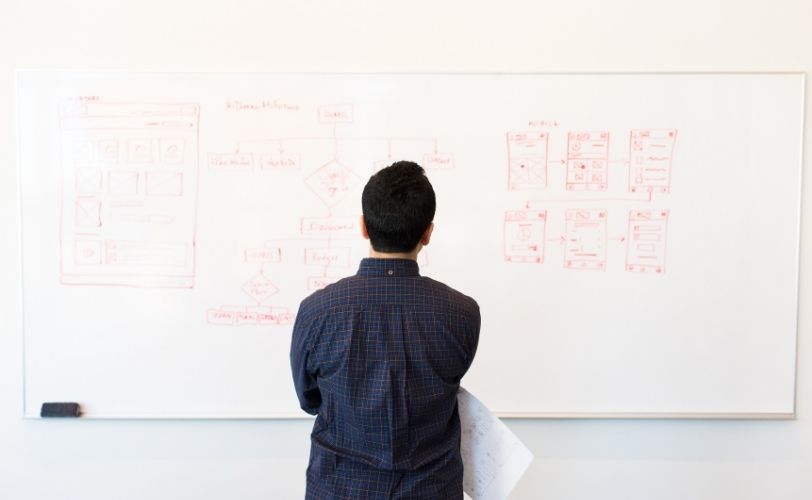How not working improves your productivity
For some, productivity has become a holy grail. Something to kneel before and worship as the answer to all our work-related prayers. If only we could be more productive, then we would be less stressed and more on top of things.

It’s no surprise then that there are countless articles, videos, podcasts and apps on the topic, claiming they have the secrets of productivity. They whisper seductively in our ear, “just do this one thing and you’ll find what you’re looking for”.
The reality behind these claims is that becoming more productive is a complex and nuanced thing, buried under layers. We have to take context into consideration and we have to look at it through an individualised lens.
At the time of writing, for example, we’re in the midst of a global pandemic. Uncertainty and anxiety forms the backdrop to our working day and we wonder why productivity is evading us.
Those of us living with mental health conditions, learning differences and other behavioural conditions are often even more in the dark as we question why this tip others swear by isn’t working for us. Suffice to say, there’s no one-size-fits-all trick to becoming more productive. It often takes time and experimentation to see what works for you.
We also need to debunk the myth surrounding productivity.

This myth leads us to believe that being productive is about working more and more and more. But if there’s one thing I’ve learnt over the years, it’s that this isn’t true.
Being productive isn’t about cramming as much as possible into your working day, actioning tasks like a robot designed for maximum efficiency. No, it’s about working with your energy levels. Identifying which tasks have the most impact. Setting boundaries and guarding your time fiercely. So how do we… do this?
In my experience, the real trick to productivity is (and this is going to sound controversial) not working at all. Taking a step back from work opens up a cavern of space to explore just what we need to be more productive. Here are just a few examples of how not working improves your productivity.
It allows you to rest and rejuvenate
When we stop working for a decent stretch of time and let ourselves switch off (literally and figuratively) we give our minds a chance to relax. The buzzing thoughts about your to-do list fall away and the volume of conversations you wish had gone differently lowers to a gentle hum. The muscles in your neck begin to loosen as your shoulders drop a little lower.
With this relaxation comes better sleep and I’m sure I don’t have to tell you how important sleep is for productivity. But, just in case you need a gentle reminder, take a look at this TEDx talk from Dr Matthew Carter who dives into the paradox of too much work impacting sleep and productivity.
All this relaxation and better sleep lead to one thing – rejuvenation. Our energy levels begin to slowly rise, which leads me nicely onto my next point.
It helps you understand your energy levels better
Our energy levels are not constant; we’re not machines that can be turned on and off with the flick of a switch. Our energy fluctuates by the hour, day, week. If you menstruate, you no doubt know how your energy changes depending on where you are in your cycle.
Understanding the art of productivity means recognising these ebbs and flows and figuring out how to work with them. When you have time off work you can start to notice when you feel most energetic in your day, when do your ideas come? Without pushing yourself to complete a mountain of work tasks, when do you typically feel tired?
Consider how you can manipulate your working day to tune into this. If you don’t have flexible working options, think more in terms of the tasks you do. If you’re most energetic in the morning, plan your hardest tasks here. If it takes you a hot minute to wake up, on the other hand, make mornings about admin and other less brain-intensive tasks.
It offers you the chance to set boundaries
Taking a break from work helps us gain perspective. It reminds us of who we are outside of work and what our priorities are. When we have this distance, we recognise that working to the point of burnout isn’t good for anyone – no matter how much we love what we do.
This knowledge can help us set clearer boundaries at work. We can create intentions around logging off on time and saying no when we’re already overwhelmed. We can think more about the big picture and whether or not every task we do is absolutely necessary. Time is something we all have equal amounts of, it’s about prioritising how we spend it.

It inspires creative thinking
When was the last time you felt truly inspired about something at work? For most of us, the game-changing ideas we have don’t arrive neatly on our desks when we want them to. Like mischievous nymphs, ideas like to show up when we least expect them.
Many of us will find they arrive when we’re doing something completely unrelated to work, like showering or going for a long drive in the country. It’s here, in these moments when our minds have space to wonder that creativity thrives.
Taking time off work to indulge in your hobbies and enjoy the space this offers can inspire more creative thinking which will serve you well on your return to work.
There are, no doubt, some helpful productivity tips and tricks out there (I’m a fan of the Pomodoro technique myself), but it’s important to go into this space with a critical eye. Understanding that we’re all different and that the secret of productivity really is this – self-awareness. But don’t take my word for it, take some time off and investigate for yourself.
And while you’re at it, try to shake off the societal pressure that demands constant productivity, especially right now. We are more than what we do and our worth cannot be measured by our output. Find your way of honouring your well-being while doing the work you love.

Find a coach dealing with Career coaching
All coaches are verified professionals





